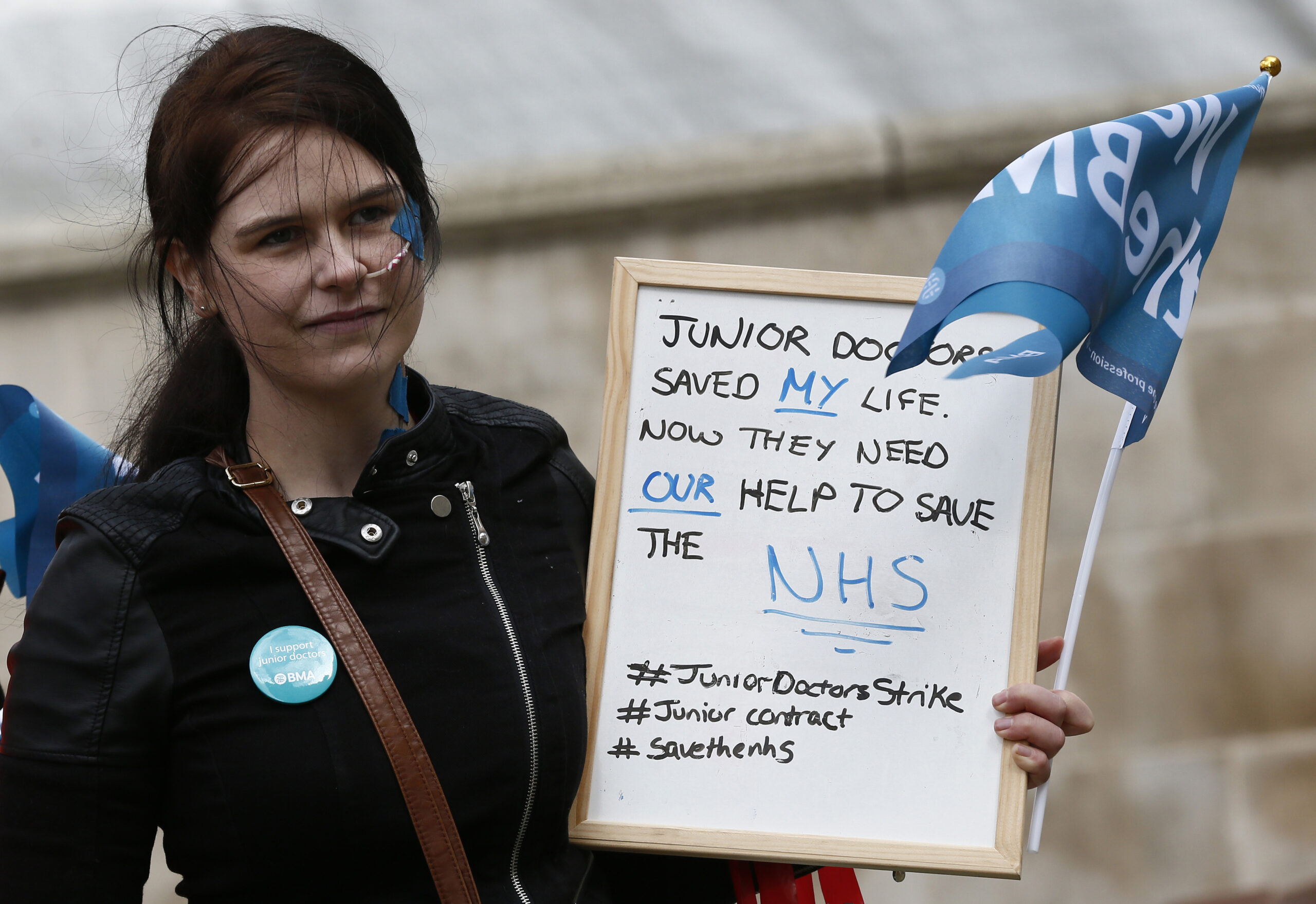NHS Workers Are Striking to Save Lives
Austerity killed 330,000.
by Dr Rita Issa & Alia Butt
27 October 2022

New prime minister Rishi Sunak will be no consolation to health workers looking down the barrel of staff attrition, post-pandemic exhaustion and, like everyone else, a cost-of-living crisis. Already, the memes are circulating that while Sunak will state that austerity is our only option, his wife has dodged enough tax to pay 75 nurses for 10 years. NHS leaders have written to the PM asking that he not “plunge the health service into an unsustainable crisis”.
It’s not just that our ultra-wealthy PM is out of touch with the working people, he represents a party that has systematically defunded the NHS under a thinly veiled agenda of privatisation. This culminated without fanfare this summer with the passing of the Health and Care Act, which paves the way for a US-style healthcare system in which health providers are incentivised to deny care in order to increase their profits. As seen in the throes of the pandemic, privatisation – i.e. outsourcing of essential services to companies outside of the NHS that are always more expensive – is a waste of taxpayer money; money which does not get recycled back into the NHS but goes into the coffers of companies with less experience and interest in public health. Just as Sunak would like you to believe the lie that the Tories have decreased poverty rates, so too is he going to set about peddling the idea that privatisation is the solution, when in actual fact it is a huge part of the problem.
The NHS is at breaking point; this is palpable both to staff and patients. There are currently seven million people on waiting lists, a number set to grow given the shortage of 50,000 nurses and 12,000 hospital doctors. Mental health staff have disappeared since 2009 while the need for their services has risen exponentially. On the ground, this has meant mass staff burnout and understandable public fury. Meanwhile, British spending on healthcare is the second lowest of G7 countries; Kwasi Kwarteng’s budget, since reversed, nevertheless signals the Tories’ desire to transfer even more funds – £10 billion if Kwarteng had his way – away from the NHS.
The Tories show no signs of intending to clean up the mess they have made. Instead, Sunak, who has allocated over £500,000 a year for focus groups to build his image, failed to deliver on NHS funding as chancellor and has made no indication that would change whilst PM.
Not only is this government a huge threat to the health and safety of the country – it’s a threat we haven’t elected. We are now at the mercy of the third Tory leader chosen not by the British electorate, but by 120,000 Tory party members. Worse still, the public order bill being pushed through parliament will make it impossible to hold the government to account, when it was public protest that forced life-saving interventions such as saving free school meals and introducing a lockdown eviction ban. When your government has forgotten what democracy looks like, it’s the people’s job to remind them – and now, they’re taking even that power away from us.
No surprise, then, that with public services on the brink and dissent being quashed, a wave of worker-led strike action has gripped the UK, spearheaded by Mick Lynch and the RMT. Healthcare workers and allied professionals are joining this tide – a momentous development, given that UK nurses have never before considered – let alone gone on – strike. The Royal College of Nurses (RCN) ballot for strike action closes on 2 November. Junior doctors – which includes all doctors in training, including specialist registrars – are looking at striking in January 2023. This follows a wave of strike action from cleaners and other outsourced NHS staff in recent years.
A narrative tool often deployed against strikers is an often individual story of inconvenience as a result of worker action. Objection to strike action by health workers centres on risk to patients. But there is no evidence that strikes increase patient harm during strike action – plus striking health workers often still deliver minimum services anyway. The truth is, we’re striking because of harm to our patients, not despite it. When we’re paid badly, understaffed and burned out, our patients suffer. When we strike to improve conditions for everybody in the long term, short-term disruption is an acceptable cost. Health workers don’t just have an ethical duty to serve patients in the immediate term, but to act preemptively to protect patients’ future health. The last round of austerity killed over 330,000 people; we must act to prevent the next one.
Still, it’s important health workers and their unions think carefully about how to present the strikes in the coming months. While doctors are feeling the pinch, framing their strike in terms of the cost-of-living crisis will cause frustration among those earning less, both within and beyond the health sector. Instead, we must convey that our strike has been made necessary by the political choices of super-rich politicians. Cross-sector solidarity and a common narrative will also be essential – something the right understands well. The right’s strength is the backing of the ruling class; the left’s is worker-led unity. We must stand together for the health, safety and flourishing of our people, and strike while the iron’s hot.
Rita Issa is a GP and global public health academic.
Alia Butt is an NHS psychotherapist mental health specialist practitioner, chair of NHS Staff Voices and executive committee member of Keep our NHS Public.


